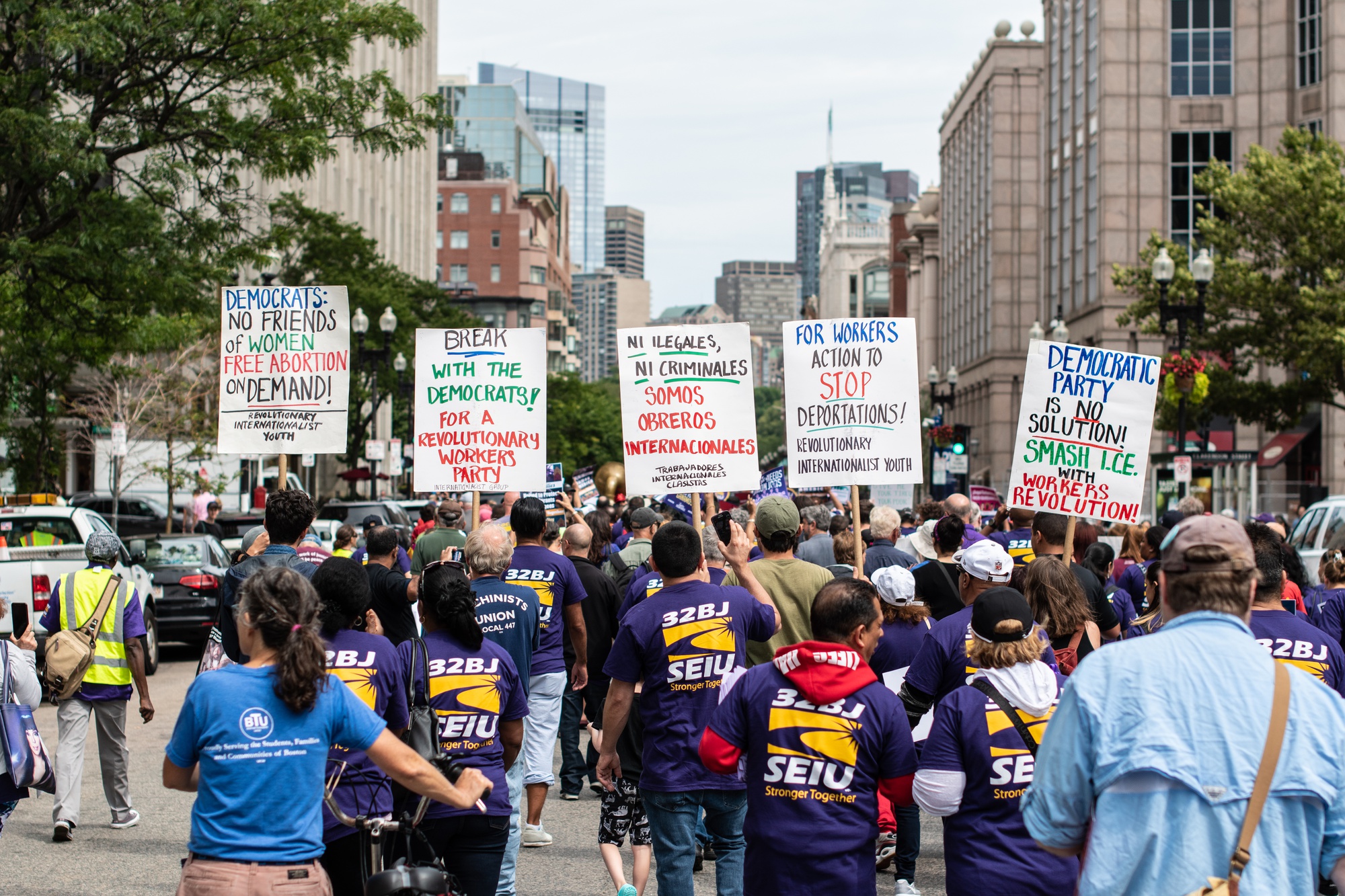
News
Summers Will Not Finish Semester of Teaching as Harvard Investigates Epstein Ties

News
Harvard College Students Report Favoring Divestment from Israel in HUA Survey

News
‘He Should Resign’: Harvard Undergrads Take Hard Line Against Summers Over Epstein Scandal

News
Harvard To Launch New Investigation Into Epstein’s Ties to Summers, Other University Affiliates

News
Harvard Students To Vote on Divestment From Israel in Inaugural HUA Election Survey
Harvard Workers Rally in Boston Labor Day March, Demand Protections for Immigrant Workers


More than 100 workers and union supporters gathered in Boston’s Copley Square in an annual Labor Day rally in solidarity with immigrant workers on Monday.
Marchers chanted “Sí, se puede” — Spanish for “Yes, we can” — as they paraded down Boylston Street. Over the course of the nearly mile-long walk, advocates voiced support for workers with Temporary Protected Status and legislation enabling immigrant workers to obtain driver licenses.
Members of Harvard’s TPS Coalition, organizers for unions, and Harvard students, held up a banner reading “No borders in the worker’s struggle” during the three-hour long event.
“I'm here today, because I want to keep my family together,” said Doris E. Landaverde, a Harvard custodial staff member from El Salvador who has TPS status and could face deportation if her TPS status expires.
TPS, a humanitarian program administered by the United States Department of Homeland Security, is a designation given to immigrants from certain countries who cannot return home due to circumstances such as ongoing armed conflict and environmental disaster.
Individuals granted TPS are protected from deportation and are able to live and work in the U.S. The Trump administration intends to end TPS protections for individuals from El Salvador, Haiti, Honduras and Sudan. That policy is currently facing multiple legal challenges and a court injunction, and has been extended for these countries through January 2020.

Jose E. Portillo, another Harvard employee and TPS recipient from El Savaldor, said he hopes one day to gain permanent residency.
Portillo said that working in the U.S. allows him to send money back to El Salvador to support his family. He said he will no longer be able to support his family members studying at El Salvadoran universities if his TPS status expires.
Roxana Rivera — vice president of 32BJ Service Employees International Union which organized the event and represents workers at Harvard — said that it remains unknown what will happen after the TPS extension ends in January.
“That’s why we have to continue to fight in the court,” Rivera said. “We have to actually be educating each other, we have to be marching on the street, we have to be making sure that we're doing everything to make sure that these families are not torn apart.”
Harvard union organizers also joined the march in support of TPS recipients.
Edward “Ed” B. Childs — the former chief shop stewards for UNITE HERE Local 26, which represents Harvard’s dining workers — called the march “extremely significant.”
“It’s the unions calling for unity amongst the unions and community groups to support the TPS struggle,” Childs said. “We see that these struggles interconnect with each other, and TPS is one of the biggest interconnectors — the immigration movement, the anti-racist movement, and the union movement all coming together.”
“That’s why I’m here,” he added.
Rally participants also called for passing the Work and Family Mobility Act through the Massachusetts legislature. If passed, the bill would allow immigrant workers who cannot prove lawful presence or present a social security number to apply for a Massachusetts driver’s license.
“Driving should not be connected to immigration status,” Rivera said. “It’s the safety for everybody...as well as allows people to provide continue providing for their families.”
As the march reached its end, Childs — who retired just last month from Harvard after more than 40 years at the University — said the event was encouraging.
“A lot of the workers are out today. They’re ready to fight,” he said
“An injury to one is an injury to all,” he added.
Want to keep up with breaking news? Subscribe to our email newsletter.
